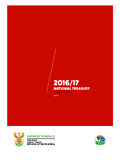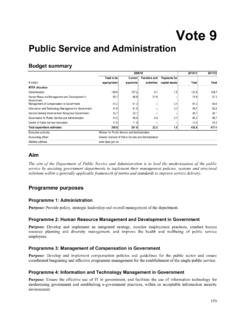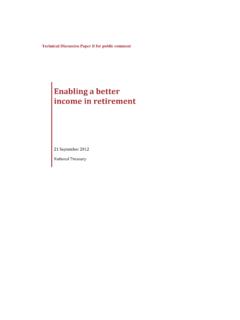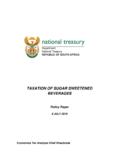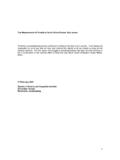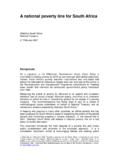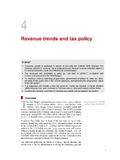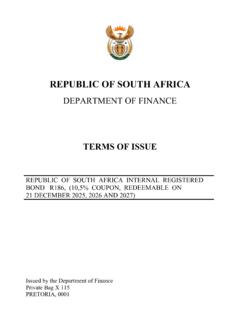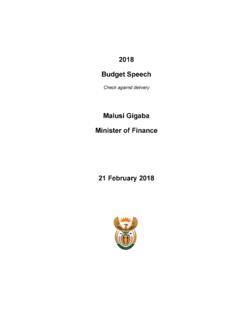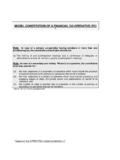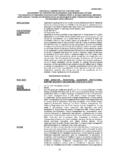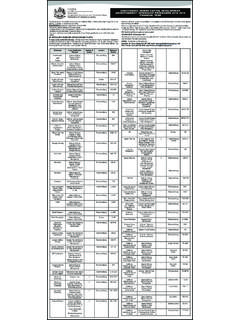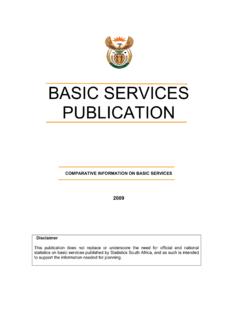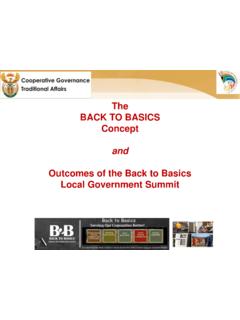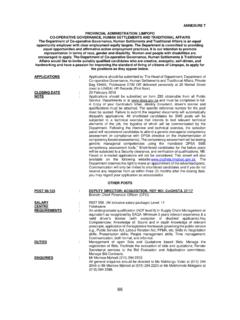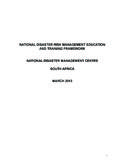Transcription of Co-operative Governance and Traditional Affairs
1 417 VOTE 11 Co-operative Governance and Traditional Affairs Operational budget R 1 136 797 486 MEC remuneration R 1 491 514 Total amount to be appropriated R 1 138 289 000 Responsible MEC Ms. N. Dube, MEC for Co-operative Governance and Traditional Affairs Administrating department Co-operative Governance and Traditional Affairs Accounting officer Head: Co-operative Governance and Traditional Affairs 1. Overview Vision The vision of the department is: People centred sustainable Co-operative Governance , which focuses on effective service delivery responsive to the needs of the communities. Mission statement The department s mission statement is: To strengthen co-operation among all spheres of government, support and build capacity of local Governance institutions, facilitate and co-ordinate stakeholder engagement, in pursuance of people-centred, accelerated service delivery.
2 Strategic objectives The department has five main strategic policy directions, namely five key priorities of government including the creation of sustainable livelihood, skills development, healthy communities, rural development, and the fight against corruption; KZN Provincial Government Integrated Programme of action; national outcome relating to responsive, accountable, effective and efficient Local Government system; the Local Government Turnaround Strategy; and the new mandate ranging from the co-ordination of organs of state to ensure maximum impact of Co-operative Governance to clarifying the role of the private sector and of state-owned enterprises in the new dispensation. The strategic objectives of the department for 2011/12 are as follows: Sustained performance of institutions of local Governance will be achieved through objectives of development, support and strengthening capacity of municipalities and Traditional institutions to ensure effective and efficient planning of service delivery and integration of communities.
3 The strategic objective supporting this goal is: effective support to Local Government and Traditional Institutions for: Strengthened Governance ; Clean financial management; Sustained and accelerated service delivery; and Effective integrated planning. Strengthened Co-operative Governance will be achieved by improving and strengthening co-ordination across all spheres of government, organs of state and all stakeholders in government programmes, to make government function better in a more integrated manner in order to accelerate development that is sustainable and improves the lives of people. The strategic objectives supporting this goal are: Estimates of Provincial Revenue and Expenditure 418 Empowered stakeholder participation in government programmes at local level (stakeholders are communities including business and unions); Improve Co-operative Governance between provincial and local spheres for effective service delivery; and Improve participation of Traditional institutions into the Governance system.
4 Efficient and effective oversight will be achieved by supporting municipalities and Traditional institutions to enhance accountability to its communities and to comply with all good Governance policies, practices and legislation. The strategic objectives supporting this goal are: Improved oversight of Local Government and Traditional Institutions in respect of Governance and service delivery; Effective departmental monitoring, evaluation and reporting systems in respect of Local Government and Traditional Institutions; and Improved accountability of Local Government and Traditional Institutions to communities in respect of Governance and service delivery. Core functions The core functions of the department have been guided by its new and expanded mandate of Co-operative Governance , as well as the constitutional imperatives and legislation relevant to local government.
5 These are existing functions in accordance with the White Paper on Developmental Local Government. These functions represent a new focussed emphasis on strengthening the role of the department as a co-ordinating department in order to achieve better lives for the people of KZN. In essence, the mandate of the department highlights Co-operative Governance , which is essential for integrated development with the department now focussing on the following functions: Co-ordination both vertically and horizontally, and doing away with the silo approach across the province. The key area of focus is planning and the department is repositioned as a critical ally of the Planning Commission to align planning across the three spheres of government, by strengthening Integrated Development Plans (IDPs).
6 Ensuring the alignment of priorities of both national and provincial departments implemented in a local space in the municipal IDPs. Ensure that IDPs encapsulates the provincial priorities and budget in a co-ordinated manner. Enhance the Inter-Governmental Relations (IGR) framework to support integration. Ensure seamless service delivery in a co-ordinated manner supported by emerging legislated processes. Put development planning at the centre stage and put people at the centre of development. Legislative mandate The legislative mandate of the Department of Co-operative Governance and Traditional Affairs (CoGTA) is presented below. Constitutional mandate The Constitution of the Republic of South Africa, 1996 defines a number of key functions for CoGTA, namely Support (Section 154 and section 155), Intervention (Section 139) and Monitoring (Section 155).
7 Specific legislation for the department Municipal Structures Act, 1998 (Act No. 117 of 1998) Vote 11: Co-operative Governance and Traditional Affairs 419 Municipal Systems Act, 2000 (Act No. 32 of 2000) Traditional Leadership and Governance Framework Act, 2003 (Act No. 41 of 2003) Municipal Finance Management Act, 2003 (Act No. 56 of 2003) Intergovernmental Relations Framework Act, 2005 (Act No. 13 of 2005) Disaster Management Act, 2002 (Act No. 57 of 2002) KwaZulu-Natal Traditional Leadership and Governance Act, 2005 (Act No. 3 of 2005) as amended (KwaZulu-Natal Traditional Leadership and Governance Amendment Act, 2007 (Act No. 9 of 2007)) KwaZulu-Natal Planning and Development Act, 2008 (Act No. 6 of 2008) White Paper on Developmental Local Government. General legislation for departments dealing with local government and Traditional Affairs Public Finance Management Act, 1999 (Act No.)
8 1 of 1999, as amended) and Treasury Regulations KwaZulu-Natal Provincial Supply Chain Management Policy Framework (2006) Public Service Regulations Annual Division of Revenue Act Specific legislation applicable to municipalities In addition to the above, there are particular pieces of legislation which apply specifically to municipalities and relate to the department s oversight, co-operation, co-ordination and alignment functions. KwaZulu-Natal Pound Act, 2006 (Act No. 3 of 2006) Development Facilitation Act, 1995 (Act No. 67 of 1995) Municipal Property Rates Act, 2004 (Act No. 6 of 2004) Water Services Act, 1997 (Act No. 108 of 1997) KwaZulu-Natal Cemeteries and Crematoria Act, 1996 (Act No. 12 of 1996), as amended by Act No. 2 of 2005 Communal Land Rights Act, 2004 (Act No.
9 11 of 2004) 2. Review for the 2010/11 financial year This section provides a review of 2010/11, outlining the main achievements and progress made during the year, as well as providing a brief discussion on challenges facing the department, and new developments. Turnaround strategy A comprehensive assessment of the turnaround strategies of municipalities has been undertaken, covering an analysis per district to measure them against the objectives of the Local Government Turnaround Strategy (LGTS). The aim is to compile a report per district and a consolidated provincial report which provides an analysis per district of the LGTS s 10 key priorities, in order to extract all areas where unblocking action is required and identifying the sector, provincial or national department responsible for such action.
10 This will culminate in a provincial support plan reflecting the support required from each internal business unit and from each sector department. Shared services function There was steady growth in the quality of IDPs prepared by municipalities, which can be attributed to the establishment of District-Wide Development Planning Shared Services (DPSS). The Shared Services unit provides municipalities with the necessary capacity to implement the new KZN Planning and Estimates of Provincial Revenue and Expenditure 420 Development Act (PDA), which includes the development, subdivision and consolidation of land. The Shared Services unit also aims to secure the required capacity to manage all municipal strategic planning, spatial planning, performance management, development administration, as well as development information services.
